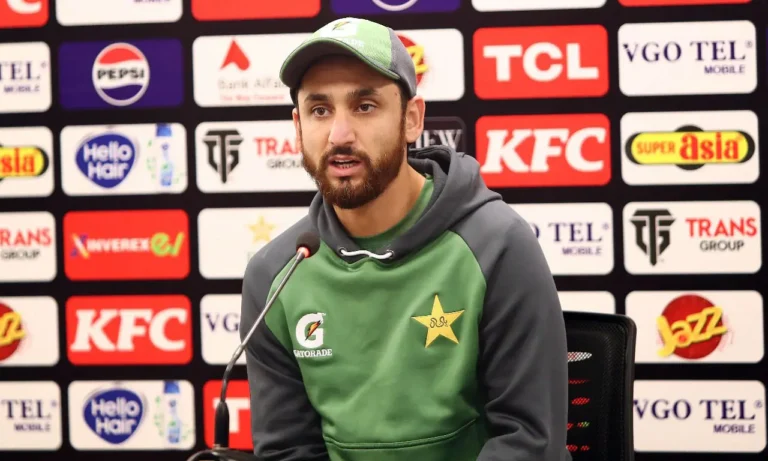Pakistan will continue trusting their all-rounder-driven strategy as they enter the T20 tri-series featuring Sri Lanka and Zimbabwe, set to begin on Tuesday at the Rawalpindi Cricket Stadium. The tournament opener between Pakistan and Zimbabwe will give the hosts their first chance to test a combination that has sparked debate for months. Although widely criticised for overlooking specialist batters and bowlers, the approach remains central to head coach Mike Hesson’s white-ball philosophy since he took charge in May.
Also Read: Pakistan Opt to Bowl in Second ODI as Shaheen Afridi Sits Out Amid Post-Crisis Reset
For captain Salman Ali Agha, this strategy is not a compromise but a strength. He believes Pakistan’s current pool of all-rounders offers the team a rare advantage. According to him, the ability of multiple players to both bat and bowl with equal impact gives Pakistan flexibility that few teams enjoy. He pointed to players like Mohammad Nawaz and Faheem Ashraf cricketers he described as “full bowlers and full batters” as examples of the depth Pakistan enjoys. Salman added that top teams around the world rely on multi-skilled players in T20 cricket, and Pakistan sees this as a valuable opportunity rather than a risk.
The squad for the tri-series remains largely unchanged from earlier announcements. The only withdrawal is batter Hasan Nawaz, who was dropped following a string of poor performances and asked to return to first-class cricket. While no official replacement has been named, Abdul Samad is expected to step into the lower middle-order, especially in the finisher’s role. Salman noted that Pakistan’s middle-order has struggled recently, and Samad’s power-hitting offers promising support in a position where Pakistan needs stability.
With the T20 World Cup approaching in February-March, Pakistan are not looking to experiment too heavily. The plan is to give all fifteen squad members opportunities, but Salman made it clear that winning matches remains the top priority. Every fixture in the tri-series will contribute to the team’s larger preparation for the global tournament, where consistency and clarity in combinations will be crucial.
Salman himself enters the series after a mixed run of form. He had a difficult Asia Cup campaign, scoring just 72 runs across seven innings, and admitted that he struggled mentally during the tournament. However, he regained confidence with a century against Sri Lanka in the first ODI and a half-century against South Africa, helping Pakistan complete a 3-0 series sweep. He hopes to carry that renewed form into the shorter format and lead from the front.
Sri Lanka, meanwhile, face immediate setbacks ahead of the tri-series. Captain Charith Asalanka and fast bowler Asitha Fernando were ruled out due to illness and sent home to ensure proper recovery. As a result, Dasun Shanaka has taken over the captaincy. The squad has also been strengthened by the addition of young batter Pavan Rathnayake, who replaces Asalanka.
Each team will play four league matches, with the top two advancing to the final on November 29. All games will begin at 6:00 pm, with the toss scheduled for 5:30 pm. As Pakistan step into the tri-series, their all-rounder-heavy approach will once again be under the spotlight. The coming days will reveal whether this strategy can silence critics and set the tone for a strong World Cup campaign.


